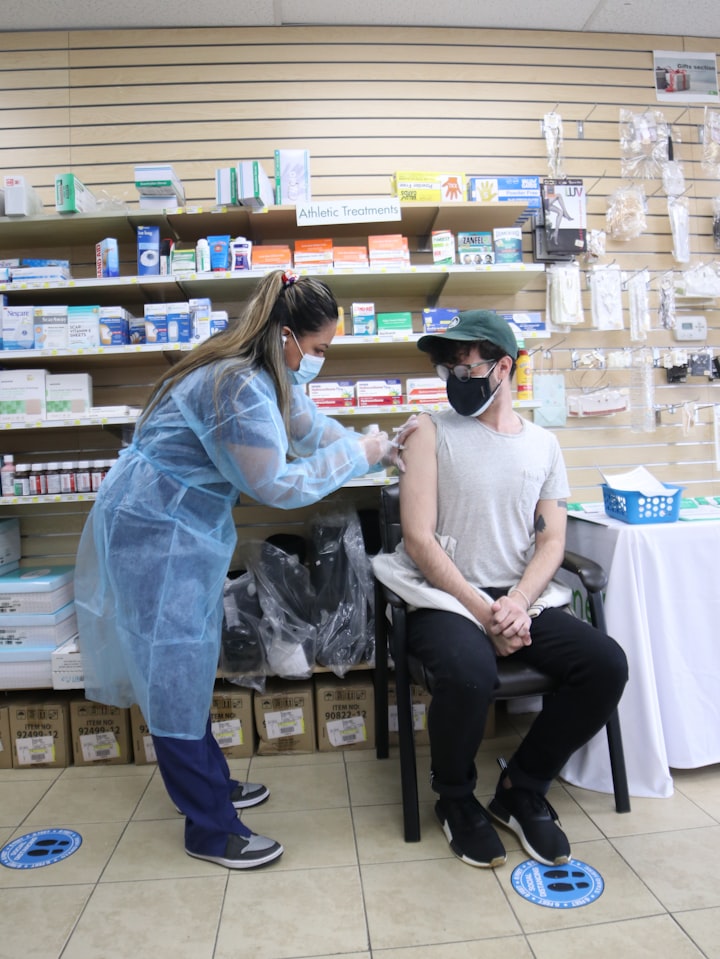3 Top Biotech News Of The Week (3 September 22)

1. FDA clears updated COVID-19 boosters from Pfizer, Moderna
A long-awaited moment!
On Wednesday, FDA approved a new version of Pfizer’s vaccine for adults and children over 12 years old and Moderna’s modified shot for adults who are 18 or older.
Both vaccines are bivalent, meaning that they target the original form of the coronavirus as well as sub-strains of the omicron variant that are currently prevalent in most of the world. It is recommended that the new vaccine be given at least two months after a primary vaccination series or a prior booster shot.
As a result of the authorizations, Moderna’s and Pfizer’s “monovalent” vaccines are no longer authorized as boosters for individuals eligible for their next shot, the agency said. However, they’re still cleared for use in the primary vaccination series, and Pfizer’s original shot will remain available as a booster for children 5 to 11 years old.
The updated vaccine regime is important, as although the original vaccines are still protective against hospitalization and death from COVID-19, they’re less effective in protecting against omicron and its related strains such as BA.5.
The full announcement from FDA can be found here.
2. Moderna sues Pfizer, BioNTech over COVID-19 vaccine technology
While Moderna's bivalent vaccine is approved by FDA, it is also pursuing legal action against Pfizer & BioNTech over patent infringement for their COVID-19 vaccine, Comirnaty.
In seeking legal action, Moderna isn’t seeking to have Comirnaty removed from the market. Instead, Moderna wants compensation for all alleged use of its intellectual property by the duo in developed countries after March 2022.
For some background, early in the pandemic when vaccine supply was limited, Moderna pledged not to enforce its patent during the pandemic. However as the pandemic situation changed, the pledge changed too. In its latest release, Moderna said it wouldn't enforce the infringements on 92 low - and middle-income countries, but expects Pfizer & BioNTech to respect its intellectual property rights for other markets.
Additionally, Moderna also got in a dust-up with the NIH over the legality of the Moderna-owned patents. The status of this dispute is still unclear.
Moderna has also been the target of vaccine-related intellectual property lawsuits. Arbutus Biopharma and Genevant Sciences claimed that Moderna’s vaccine violated six of their patents related to the delivery technology involved in the shot. Moderna lost the LNP-related delivery patent lawsuit to Arbutus with the ruling being delivered on Dec 21.
3. Beam details reasons for FDA hold on base editing cancer therapy (BEAM-201)
Following up on the reported FDA hold on the clinical trial of Beam's lead product, BEAM-201 in the first week of August. You can refer to our previous weekly article for details on BEAM-201.
As a quick recap, BEAM-201 involves an advanced technology, called multiplex editing where several genetic sites are edited at the same time. BEAM-201 is designed to use cells from healthy donors that would then be manipulated and infused into cancer patients.
According to Beam’s filing, the FDA asked the company for information related to its preclinical experiments before it’ll let the company proceed. The regulator wants more information from what Beam described as “genomic rearrangement assessments,” as well as data on off-target edits and from a specific type of test called a cytokine independent growth assay. It’s also looking for Beam to update the brochure given to researchers with information on any new preclinical studies done by the biotech.
Despite the 'negative' hold-up, the FDA’s request may end up being a good thing for Beam and the CRISPR-editing field in general as it allows the agency to establish best practices for multiplex editing.
If you liked our article, subscribe to our newsletter to receive our latest articles directly in your inbox. The subscribe button can be found at the corner of the page.
Disclaimer: All opinions shared in this article are the opinions of the authors and do not constitute financial advice or recommendations to buy or sell. Please consult a financial advisor before you make any financial decisions. The authors do not hold positions in any of the mentioned securities.





Comments ()